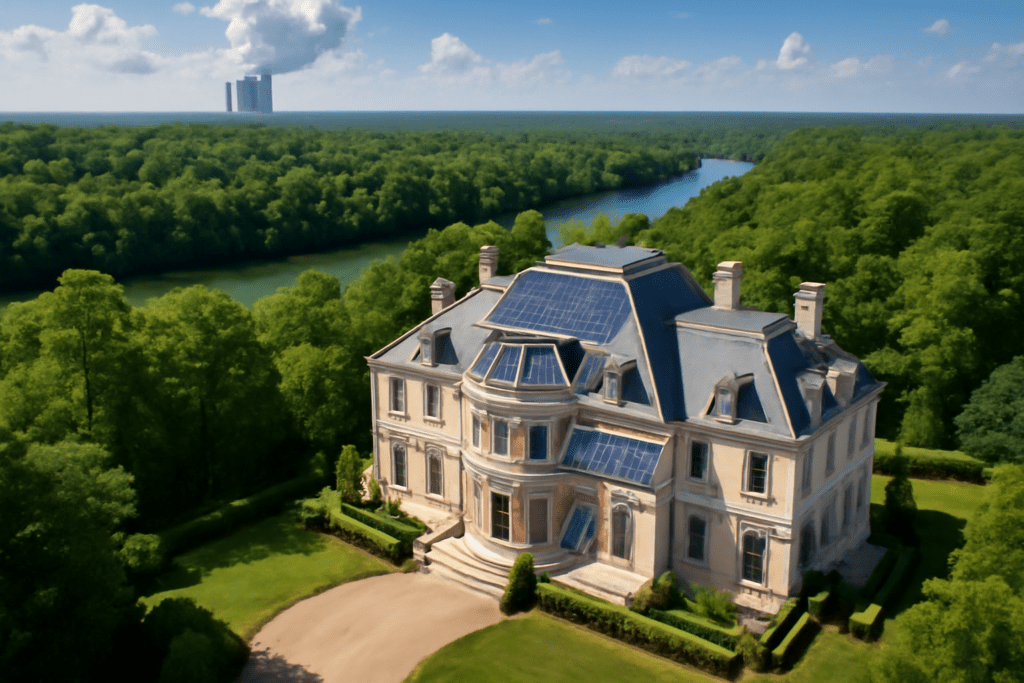Confronting a Stark Truth: Inequality on a Warming Planet
Step back for a moment and consider this: the top 10% of the world’s earners are responsible for two-thirds of global warming since 1990. Not oil giants or distant industries, but the economic elite whose lifestyle and investment choices heat the planet—and leave its most vulnerable reeling from consequences they did little to cause. According to research recently published in Nature Climate Change, the world’s richest have driven both average temperature rises and a disturbing proliferation of extreme weather, from deadly heat waves to catastrophic droughts.
Emissions inequality is as stark as income or wealth itself. The poorest half of humanity—some 4 billion people—account for just a tenth of global emissions, while nearly half arises from the richest decile’s consumption and investing habits. These are not abstractions: every luxury flight, every energy-hungry mansion, every dollar channeled into carbon-intensive portfolios compounds climate risks for communities oceans away.
Beneath the headlines, a grim calculus emerges. Researchers found that the top 1% have contributed twenty-six times the average person’s share to deadly heat extremes and seventeen times more to Amazonian droughts. This is not simply about who uses the most energy, but who holds the levers of global capital—the power to decide how steel is made, how forests are managed, how much oil is drilled and burned. And the repercussions are not evenly spread. As the world’s privileged millionaires toast on superyachts, entire nations in the Global South face withering crops, flooded coasts, and unlivable temperatures.
Why Investment Choices Matter as Much as Lifestyles
What sets this new study apart is its granular tracing of emission sources. The researchers combined economic data and intricate climate models to match greenhouse gas outputs to specific income brackets, then assessed their causal role in climate extremes. This method, detailed by Swiss climate scientist Sarah Schoengart and colleagues, moves beyond simply counting private jet miles or SUVs; it peels back the layers of financial influence. The profits derived from fossil-fuel-heavy investments, real estate speculation, or global supply chains power a system where the wealthy’s “carbon shadow” stretches far beyond their personal consumption.
The numbers are staggering. In the U.S. and China, emissions from the wealthiest 10% delivered a two- to threefold increase in heat extremes across vulnerable regions, exacerbating deadly events from California’s wildfires to the relentless monsoons and droughts that plague South Asia. What’s more, more than half of all full-time UK employees land within this global top 10% bracket, suggesting that climate responsibility in developed countries is both broader and deeper than many realize.
“If everyone on Earth had the same carbon footprint as the poorest half of humanity, almost no additional warming would have occurred since 1990. The rich aren’t just using more—they’re deciding the fate of the climate for everyone else.”
The study’s implications are profound: the so-called ‘invisible hand’ of the market, in practice, serves as an invisible boot for billions who did the least to create the crisis. According to the United Nations Environment Programme, the world’s poorest regions, emitting the least, increasingly face displacement, famine, and disease linked directly to climate extremes fueled by far-away affluence. This is a textbook case of climate injustice, where geography and class collude to decide who escapes disaster and who cannot.
Paving the Path Forward: Policy, Accountability, and Moral Reckoning
How should society respond when the costs—averaging $143 billion in weather-related damages yearly, according to the study—are hitting those least equipped to pay? Calls for justice and reparations grow louder every year, especially as the window to avoid catastrophic warming closes. Yet, global deliberations remain mired in complacency and the wishful hope that the market will self-correct.
Progressive voices increasingly insist that targeting the carbon-rich through wealth taxes and reformed climate finance is not just fair, it’s necessary. Harvard climate economist Daniel Schrag has long argued that “policy should focus on where the most effective reductions can be made: on those with the greatest capacity and responsibility.” The logic is simple—a global carbon tax or robust wealth taxes, particularly on polluting investments, could yield dramatic climate benefits while filling adaptation and disaster-relief funds in the hardest-hit countries.
Take historical parallels: The principle of “polluter pays” has underpinned American Superfund legislation for decades, requiring industries to remediate contaminated sites. Why should climate be different? Movement toward climate equity, as championed by activists like Vanessa Nakate and organizations such as Oxfam, demands that the burden of fixing climate damage fall in proportion to the harm caused, not only to future generations, but to current victims of climate-fueled catastrophes.
The path forward is not merely technical—it’s moral. Societies must ask whether a world where mega-yachts coexist with submerged villages embodies the values we claim to hold. Individual gestures—like recycling or eating less meat—matter, but without systemic reform steering the financial and policy choices of the world’s carbon elite, such changes will remain a drop in an ever-boiling ocean.
Collective well-being and climate stability hinge on our willingness to confront uncomfortable truths about privilege and responsibility. As the study makes clear, the greatest levers for climate action rest not with those already suffering, but with those whose wealth—and choices—drive the crisis. The time for polite appeals has passed. Only bold policy and grassroots pressure can rebalance the scales, ensuring that those who profit most from the world as it is contribute most to building the world as it must be.

